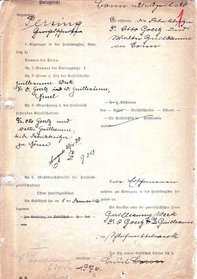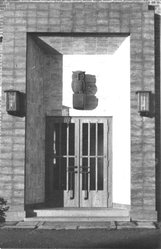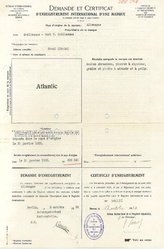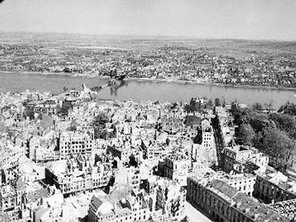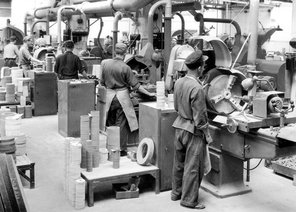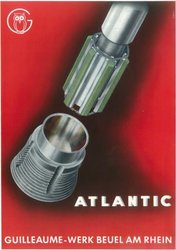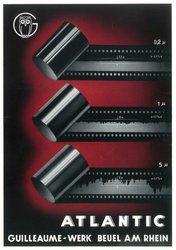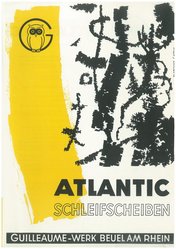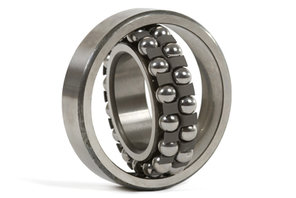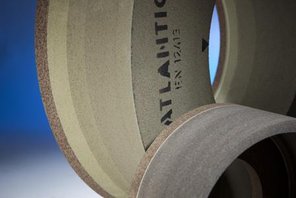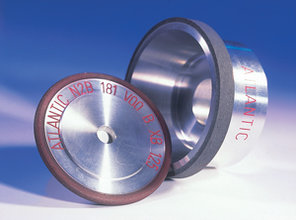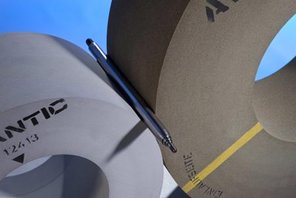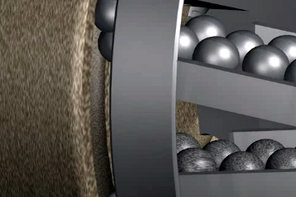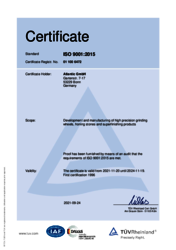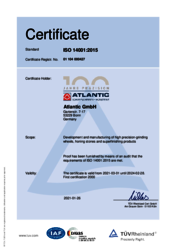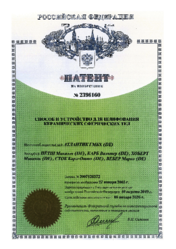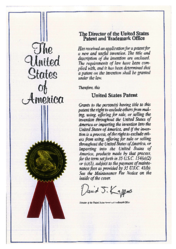The ATLANTIC company history
Click through the exciting and eventful company history of ATLANTIC. Starting before the company was founded in 1920 up to the 100th anniversary in 2020.
The exciting and eventful history of Atlantic GmbH
1755 – Clemens August, Archbishop and Elector of Cologne establishes a factory for producing porcelain

Elector Friedrich August I of Saxony, known as "Augustus the Strong", was the founder of porcelain production in Europe. Porcelain was being successfully produced at Meissen in Saxony since 1809. This led to Clemens August, Elector and Archbishop of Cologne, wanting to establish a similarly successful production facility in Bonn. In addition, the porcelain lover's passion for collecting acted as a motive for establishing his own porcelain factory and was also seen as a way of reducing costs. The Archbishop of Cologne also hoped to create wealth and splendour for his residential city.
In 1755 he therefore founded the Poppelsdorf Faience Fabrique on the grounds of the so-called 'Katzenburg' (a small summer mansion surrounded by fish ponds) south of Poppelsdorf town centre, near Poppelsdorf palace. Despite consulting a porcelain connoisseur in 1756, the attempt to produce porcelain in the same manner as the famous Meissen porcelain failed, and the elector quit after two years and withdrew his support.
The Poppelsdorf Faience Fabrique experienced a chequered history, which was marked by frequent changes of ownership until finally, in 1825, it was taken over by Bonn businessman, Ludwig Wessel, after which it enjoyed success as the "Porzellan- und Steingutfabrik Ludwig Wessel" ("Ludwig Wessel porcelain and stoneware factory"). As this was accompanied by the development of new production facilities, the small original factory was bought by Bonn businessman, Franz Anton Mehlem, in 1836.
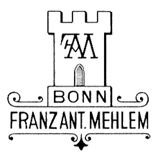
After the ceramic industry gained a foothold in the Rhineland, it saw more and more porcelain and stoneware factories being established. Franz Anton Mehlem's two sons sensed their success depended largely on the location of their manufacturing plant and moved their pottery factory to the Rhine area in 1839/1840. Four kilns were in operation by 1841 and the first steam operated machine was installed in 1845.
After the second Mehlem brother died childless in 1865, the factory was taken over by entrepreneur Ferdinand Frings from Uerdingen, who joined forces with Cologne businessman, Franz Guilleaume, in 1874. After Ferdinand Frings of Uerdingen died suddenly shortly after forming the partnership, Franz Guilleaume took over the entire executive board at the age of 25
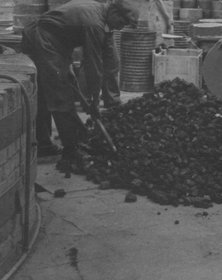
Franz Guilleaume is the son of Theodor Guilleaume, owner of company Felten & Guilleaume, which manufactures deep-sea cable in Cologne. Thanks to working with his father and years spent abroad, the young Franz Guilleaume has profound business knowledge that stands him in good stead for opening up new markets and increasing the capacity of the factory. The company performs very well under his leadership. The workforce increases from an initial 130 to 1,000 employees within 25 years.
Franz Guilleaume is also trend-setting in terms of his social commitment. At a time when it was not yet common practice for industrial companies, he established a relief fund for members of his workforce, an in-house health plan.
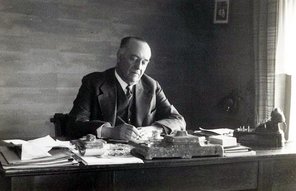
After the death of Franz Guilleaume in 1914, his son, Walter, takes control of the factory "Franz Anton Mehlem". Many innovations are initiated following the acquisition. One such innovation includes production trials in the field of grinding products.
The experience gained in the manufacture of ceramics and porcelain is exploited here. New methods are also explored in other areas. This enables improved production methods and strengthens international sales.
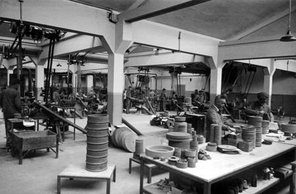
After the outbreak of World War I in 1914, the demand for pottery and porcelain decreased slightly at first and then dramatically as the War continued. In 1916 the focus is placed on the new product segment of grinding wheels.
The industrial requirement is significant and the business grows rapidly. Recognising the signs of the time, Walter Guilleaume and his brother-in-law, Dr. Otto Goertz, set up a separate department for producing grinding wheels in the existing company. The vast experience gained in the production of ceramics stand the company in good stead for developing the grinding wheel sector.
After experiencing healthy development thanks to the grinding wheel division, the decision is made to establish a new company which can be devoted entirely to the manufacture of ceramic grinding wheels. The founding document is signed on 20 April 1920, however, an entire section of the Franz Ant. Mehlem factory is outsourced and relocated to the other side of the Rhine in Bonn Beuel.
The newly founded grinding wheel company is henceforth known as "Guilleaume-Werk – Dr. O. Goertz und W. Guilleaume".The original production plant of Franz Anton Mehlem is sold to Villeroy & Boch on 1 June 1920 and develops well initially. With the onset of the global economic crisis, the demand for pottery and porcelain from the factory decreases significantly and the factory does not see the end of the economic crisis in 1929.
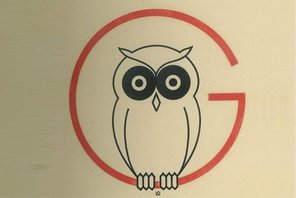
The ATLANTIC Owl is created as the company's emblem by Louis Oppenheim. Louis Oppenheim (1879 – 1936) was one of the most influential graphic designers of the 20s and 30s. He worked for the state railway and Persil and also created the "Berlin poster style". His works are signed with his typical "Lo" signature.
The original draft of the ATLANTIC Owl has fortunately been preserved. To this day the ATLANTIC Owl remains the emblem of our company.
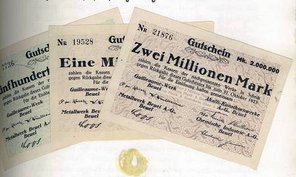
After the First World War the situation for the industrial company is not easy. In French-occupied Rhineland the sale of manufactured goods in the non-occupied territories is only possible by smuggling at night. As there is also a lack of cash, people resort to self-printed vouchers.
The first commercial agency agreement for the sales territory in the northern Rhine area is concluded with Hoffmann und Posse from Essen.
International sales have been extremely important for the company since its foundation. The international experience of Walter Guilleaume and Dr. Otto Goertz enhance its development.
As early as 1925 products were being exported to Argentina, Brazil, Belgium, China, Denmark, Great Britain, France, Holland, Italy, Yugoslavia, Mexico, Austria, Romania, Spain, Czechoslovakia and Hungary.
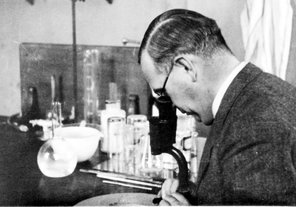
Dr. Alexander Guilleaume joins the company on 1.10.1927. He sets up a modern chemical laboratory as his first official act. His activities are particularly focussed on the development of new bonds and the quality control process for abrasive grains. However, the improvement of production processes is also seen as an important focus of the laboratory.
The systematic development of modern abrasives for specific customer requirements leads to a significant improvement in the performance of ATLANTIC products.
The "ATLANTIC" brand name has been protected by the trading company "Schuchardt & Schütte" since as early as 1921. The brand name has been used frequently, particularly for international sales.
The brand name was adopted in 1931 and subsequently protected on an international basis in all major countries.
What is particularly interesting is the document of International Registration in Bern dated 1932.
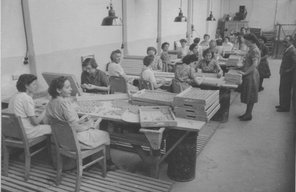
The group photo of all employees in front of the main building is an interesting historical document. The number of employees increased significantly over the years after the company's foundation in 1920. There were only 55 workers and 15 staff in the company in 1923; by 1936 this had grown to 100 workers and 30 staff. Further development is documented in 1941: 200 workers and 55 staff were employed by the company at this time.
The Allied bombing raids increased significantly in 1944. The Ruhr and the Rhineland in particular were the focus of destruction. The proximity of the factory to the Bonn Beuel railway station, which was seen as a major transportation hub, as well as its classification as a production plant, led to its destruction.
During the night of 18 October 1944 the factory was almost completely destroyed.
Photo source: Archive of General Anzeiger Bonn (online publication) from the article dated 19.10.2010 by Christina Fuhg
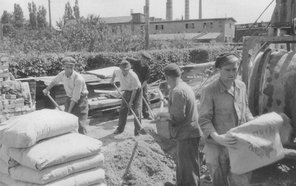
After the bombings the remaining workers start to rebuild the production plant almost immediately. Ultimately, however, reconstruction takes several years and the procedure really gains momentum after the return of prisoners of war.
In essence, the layout of the factory is maintained, but the use of modern production equipment such as kilns and presses is also catered for.
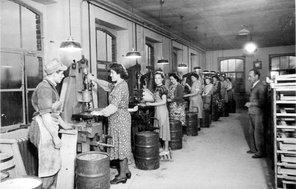
Immediately after the war, the occupying powers do not allow the production of grinding wheels, making it exceptionally difficult to restart production.
However, similar to overcoming the situation faced in 1920, a means was found to recommence production; demand for low voltage porcelain, known as “Möppchen “ for rebuilding the German electricity network is in high demand, and this is therefore produced temporarily.After getting the permission of the occupying powers, the production of grinding wheels is started again immediately.
An internal paper with the suggestive name "Das Werk und ich" ("The company and me") is established in order to strengthen workers' identification with "their" company.
The paper reports on the development of the company, provides information about anniversaries and also serves as a mouthpiece for employees.
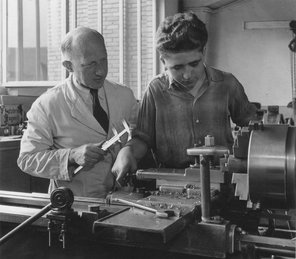
Almost simultaneously with the paper, and quite unusual for its time, a company suggestion scheme is introduced that takes suggestions from employees regarding ways to enhance the well-being of the company in a non-bureaucratic and efficient manner. These suggestions are then checked and, where appropriate, lucratively rewarded. Personal engagement and responsibility are encouraged through this measure.
A honing stone production facility is established for both long stroke and short stroke honing (superfinishing). This involves the production of blocks, which are either ground to size in a final machining operation or individually tailored for each customer with diamond-tipped tools (sawing).
In order to prevent gravitation of the diamonds at 750° under the influence of oxygen, a switch is made to grinding in a wet process, i.e. cooling with water. This, too, is very unusual for the time and represents a technical innovation. This kind of protected diamond enables precise cutting and grinding.
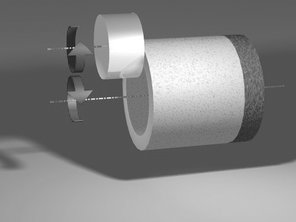
ATLANTIC becomes the market leader in honing and superfinishing. The production of honing cups for superfinishing spherical and flat surfaces is started. Innovative manufacturing technology determines the production process.
Special procedures for producing bonds and consolidated knowledge in the pressing and hardening of superfinishing tools have ensured ATLANTIC's prominent position in the superfinishing sector to date.
In order to further enhance international sales, the viability of investments and the acquisition of competitors is analysed.
The investment in French grinding wheel factory "Sectameul" in Cachan near Paris, establishes a facility in France for making small abrasive products (<100 mm), which is later renamed "Meules Atlantic".
The complete acquisition of the French production plant for small grinding wheels "Meules Atlantic" is concluded in 1979.
This step results in further strengthening the business sector for small abrasive products, as well as enhancing commercial activity in France, which, at that time was the strongest foreign trade sector.
The bearing industry is one of the most important customer segments for ATLANTIC at the beginning of the 80s. The development of ceramic ball grinding wheels is another new product segment.
In contrast to lapping procedures, modern grinding technology ensures perfect roundness and brilliant surfaces with maximum productivity and environmental compatibility.
Synthetic resin bonded wheels have been manufactured by ATLANTIC since 1950. In 1985, however, there is a significant improvement in the quality of the synthetic resin bond.
Wheels are developed in the synthetic resin sector, which, despite different composition layers, are pressed as a homogeneous entity. Precise coordination of the different compositions is necessary in order to ensure a wheel with physically uniform properties despite its different layers.
1986 sees the start of production of super abrasive grinding wheels based on diamond and cubic boron nitride (CBN).
The extremely tough mineralogical structure of the abrasive grain enables these wheels to easily grind tough materials such as ceramic, glass, HSS steel and metallic materials with hardness values (HRC) > 65.
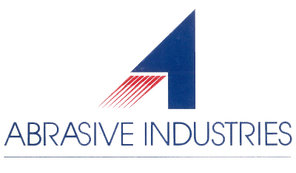
In 1988 Dresser sells the company to US-based ABRASIVE INDUSTRIES. The company is an amalgamation of several companies involved in the abrasives industry with offices in Europe and the USA.
In addition to the production of grinding wheels, the group also includes a company that produces aluminium oxide as an abrasive grain.
1991 sees the start of the use of epoxy resins in addition to the phenolic resins that are usually used in the synthetic resin sector.
The reason for establishing this resin division was the desire to find an equivalent to the very specific rubber bonded grinding wheels and control wheels used in the centreless grinding sector.
The advantages offered by epoxy resins compared to rubber include enhanced environmental compatibility both in terms of production and subsequent use.
After the successful introduction of ceramic ball grinding wheels, special resin wheels are developed for the fine and superfine ball grinding procedures.
Ra values of up to 0.005 µm are achieved with these wheels. ATLANTIC manufactures superfine ball grinding wheels for the highly productive "Stone to Stone - Procedure".
New bonding systems for superfine grinding with water-based coolants are developed.
In accordance with our principles, which were developed by ATLANTIC GmbH in 1995, we laid the foundation for our quality management system and developed an information-oriented operational organisation for the entire value creation process.
Our quality management system was initially certified according to ISO 9001 in 1996. Ongoing development and continuous improvement has ensured successful QM certification up to the currently valid ISO 9001:2015 standard.
The introduction of integrated management systems for quality, environmental protection and occupational safety in 2000 led to successful certification according to ISO 14001.
To date, our integrated quality and environmental management systems fulfil all of the requirements of the applicable standards, and also take into account all of the needs of our customers for the future.
Grinding wheels are developed for machining extremely hard balls consisting of Si3N4 and other ceramic materials. This production process is patented in the USA and Russia in 2010.
Balls can be machined extremely efficiently and cost effectively in diameters ranging from 1.0 to 50 mm. The difference in grinding with the patented wheels for currently practiced lapping procedures is particularly noticeable in the first grinding process after the sintering stage (the sintered skin is up to 500 µm thick). Stock removal rates up to 50 µm/h are possible here. Perfect roundness and surface finish can be produced up to grade G10.

ATLANTIC GmbH receives the Supplier Award from Bosch in the category "Indirect Material and Logistic Services". The Bosch award recognises companies that have performed particularly well in manufacturing and supplying products or services over the past two years – especially in terms of quality, pricing, reliability, technology, and continuous improvement.
"The Bosch Supplier Award goes to outstanding suppliers who play a key role in the Bosch Group's success and work with us on the ongoing further development and improvement of our products and manufacturing processes," said Franz Fehrenbach, chairman of the board of management of Robert Bosch GmbH, at the presentation ceremony on 19 July 2011 at Stuttgart's Alte Reithalle.
Bosch confers its global supplier award every two years. This is the 12th time it has been presented since 1987. There were no awards in 2009 due to the global financial and economic crisis. The prize was awarded to a total of 60 suppliers from 14 countries in one of seven categories.

Since the foundation of ATLANTIC on 01.01.1920, the company has stood for experience and innovation in the field of grinding tools.
Under the motto "100 years of precision" ATLANTIC is going to present itself after the Corona pandemic at the world's leading specialist trade fair for grinding technology, the Grindtec in Augsburg, with an elaborate anniversary stand. In addition, a large anniversary celebration will be held for all employees, important customers and suppliers.
With the integration of a comprehensive ERP system it is possible to present the complicated production processes in a bundled and networked way. After several months of work, the IT team managed the successful transition to the new system.

